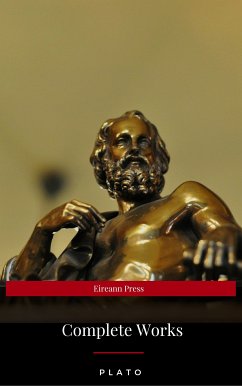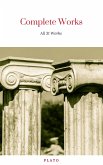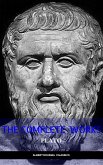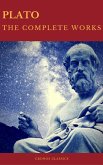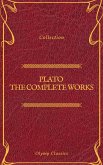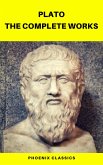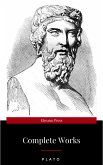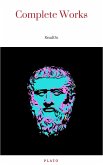Plato was a philosopher in Ancient Greece. He was an essential figure in the development of philosophy, especially the Western tradition, and he founded the Academy in Athens, the first institution of higher learning in the Western world. Plato's dialogues have been used to teach a range of subjects, including philosophy, logic, ethics, rhetoric, religion and mathematics. His lasting themes include Platonic love, the theory of forms, the five regimes, innate knowledge, among others. His theory of forms launched a unique perspective on abstract objects, and led to a school of thought called Platonism. This collection contains the following works by Plato: Early Works .Apology .Charmides, or Temperance .Crito .Euthyphro .Gorgias .Hippias, Lesser .Hippias, Greater .Ion .Laches .Lysis .Protagoras Transitional Works .Cratylus .Euthydemus .Meno .Parmenides .Phaedo .Phaedrus .Symposium .The Republic Middle Works .Theaetetus Late Works .Critias .Laws .Philebus .Sophist .Statesman .Timaeus Works of Disputed Authorship .Alcibiades I & II .Eryxias .Menexenus .Theages
Dieser Download kann aus rechtlichen Gründen nur mit Rechnungsadresse in A, B, BG, CY, CZ, D, DK, EW, E, FIN, F, GR, H, IRL, I, LT, L, LR, M, NL, PL, P, R, S, SLO, SK ausgeliefert werden.

